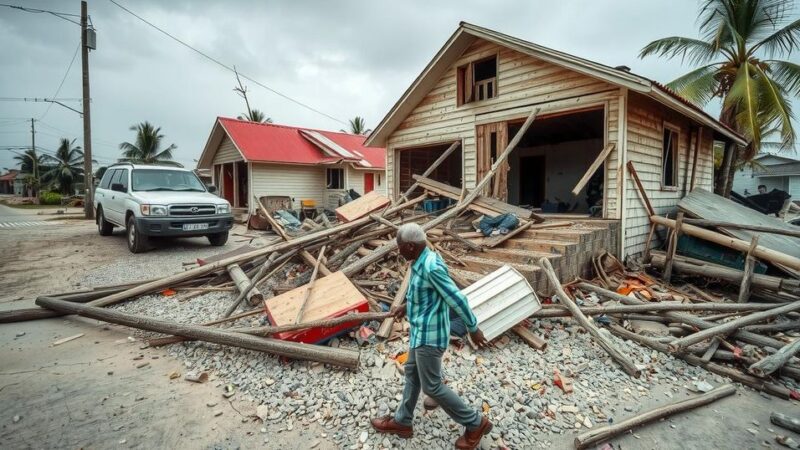A study indicates that heat stress during pregnancy may harm fetal development, leading to low birth weights and stunted growth after birth. Researchers found a correlation between climate change and health risks for infants, highlighting the need for urgent action to mitigate these effects. Public health measures must prioritize vulnerable populations as climate changes threaten child health. Immediate action is required to safeguard future generations against these looming challenges.
Recent research published in The Lancet Planetary Health indicates that heat stress during pregnancy may significantly affect fetal development. Expecting mothers exposed to elevated temperatures are more likely to have babies with low birth weight. Dr. Ana Bonell, the study’s lead author, emphasized that the first trimester is particularly prone to such environmental stressors. Data gathered from 668 mothers and infants in Gambia revealed that continuous heat exposure led to stunted growth in infants, raising concerns about climate change’s broader implications for child health and development.
The repercussions of this phenomenon extend beyond birth, reflecting the necessity for pregnant women to adapt their health measures in response to escalating climate pressures. Factors such as diminished appetite and food availability are critical concerns. Dr. Bonell highlighted the urgency of addressing these interconnected issues, as climate change alters the landscape of public health, particularly among vulnerable populations. With global warming prompting an increase in child malnutrition and health ailments, timely interventions are pivotal.
In light of the foreboding trajectory of climate-related health issues, governmental and organizational policies must respond decisively. This includes developing public health strategies targeted at populations disproportionately affected by heat stress. Current climate initiatives, such as the Inflation Reduction Act’s provision for energy-efficient home upgrades, represent a step in the right direction, although progress must be accelerated. The consensus among scientists is clear: mitigation of climate change is critical to safeguarding future generations.
The potential outcomes of inaction are dire; experts emphasize that improvements in child health are imperative. As indicated, “These findings must spur action on improving child health” – Dr. Ana Bonell. Without immediate and substantial measures, we risk exacerbating the growing threats posed by climate change to infant and maternal health.
The intersection of climate change and public health is increasingly becoming a critical topic of investigation. As climate-related phenomena such as extreme temperatures and pollution intensify, their potential effects on vulnerable populations, particularly pregnant women and infants, must be comprehensively understood. Research indicates that environmental stressors can significantly disrupt normal fetal development, further complicating the health landscape in a warming world. This situation is exacerbated by existing health inequities, necessitating urgent public health initiatives.
In conclusion, the research underscores a pressing need for action regarding climate change and its implications for infant health. The identified risks during pregnancy, particularly due to heat stress, highlight the vulnerability of both mothers and infants. As the global climate crisis escalates, it is imperative that public health strategies evolve to protect future generations, particularly those at greater risk from environmental changes. Efforts to enhance child health amidst these challenges must be prioritized.
Original Source: www.thecooldown.com







